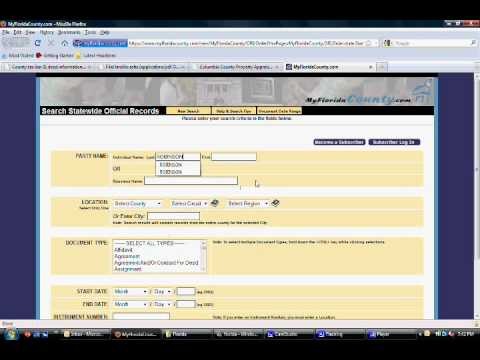Florida tax lien auctions monopolized by large financial institutions
Post on: 19 Июнь, 2015 No Comment

May 3, 2013 | By Megan O’Matz and John Maines, Sun Sentinel
Tax lien auctions are a little-known but juicy Florida financial market worth up to $1 billion a year. And, the Sun Sentinel has found, banks, hedge funds and other financial powerhouses have hit upon a way to game the system, squeeze out the little guy and gobble up most of the good deals.
I don’t think it’s fair; it’s rigged, said Linda Kliston, of Plantation, a small-scale investor who, like many others in South Florida, finds she can no longer realistically compete.
Big banks are widely blamed for sending America’s real estate market and economy into a tailspin beginning in 2007, and then receiving billions of dollars in government bailout loans. Now, some of these same financial heavyweights have found another way to turn the system, and Floridians who can’t pay their taxes in time, into a profit center.
The matter involves the buying and selling of the right to collect back state and local taxes on homes and other properties whose owners have fallen behind in paying their taxes. In the jargon of the taxman and real estate lawyer, such claims on delinquent taxpayers are known as liens. And no state sells more of them than Florida.
If you purchase a lien, you have to immediately pay off the tardy tax bill, which gives municipalities the income they need to pay police, firefighters, schoolteachers and other costs. Then, when the property owner settles up, you recoup the amount you advanced to the tax collector, and can charge the property owner interest as well.
That’s when owning tax liens gets financially attractive, especially in economic times like the present, when real estate, stocks and even gold bullion are not reliable havens. A bank CD might pay 0.26% interest a year these days. Florida tax liens guarantee a return nearly 20 times higher, and can generate annual returns of as much as 18%.
For decades, these liens were part of some families’ or individuals’ investment portfolios, with the proceeds used to help fund retirements, vacations, kids’ college tuition and other personal expenses.
Then events coincided to rewrite the script. Uncertainly bred by the Great Recession made the financial returns on liens look extremely attractive to institutional investors, including banks that provide millions of dollars in credit to hedge funds seeking to buy liens. About the same time, tax collectors in Florida started selling the liens online.
Those online auctions have come to be dominated by large financial institutions, which have dramatically increased their odds of winning by forming thousands, even hundreds of thousands, of proxy or shell companies to flood the auction, giving them a huge edge in tie bids where the winner is chosen by lottery.
The gambit is legal under Florida law, but some question whether it’s fair. The silly or preposterous names often given the dummy companies Yay for Tax Liens, Pork Chop Sandwiches and Spiderman Corp. among them strongly suggest their creators know there’s something absurd about the whole process.
The majority of the smaller bidders are getting squeezed out or dropping out because they cannot effectively compete, complained Miami real estate agent Murry Diamond, 60, a longtime participant in South Florida tax auctions.
I’m one of the people they’re driving out, Diamond said.
From co-eds to online

Until the sale of liens moved online, beginning in Florida in about 2005, the auctions were held in county auditoriums or courthouses, with participants having to attend in person.
Bidders included representatives of banks and investment funds as well as retirees toting newspapers marked with handwritten notes about liens on advertised properties.
Even then, banks and other big investors had an advantage: They brought in dozens of associates to increase their chances of being chosen, especially in tie votes.
Getting noticed by the auctioneer was key.
If 200 people stand up at one time, trying to figure out who the actual bidder was was complete madness, recalled Gadsden County Tax Collector Dale Summerford.
To set themselves apart, some would-be lien buyers wore gaudy clothing. Other yelled at the top of their lungs. To better their chances, some financial institutions hired attractive female college students to bid on their behalf.
Mostly local people bought the debt and much of the resulting profit stayed in the area, recalled W. Fred Petty, retired Pinellas County tax collector. It did not go to New York or Timbuktu.
Today, in the online auctions, bids flood in from all over the world, from cyber competitors who can place thousands of offers within milliseconds with a few keystrokes. The winning bid is supposed to come from the investor who agrees to assess the delinquent homeowner the lowest penalty. But that’s far from the whole story.














